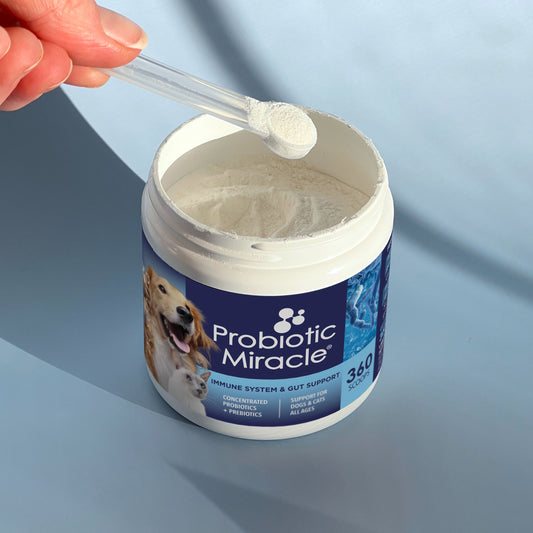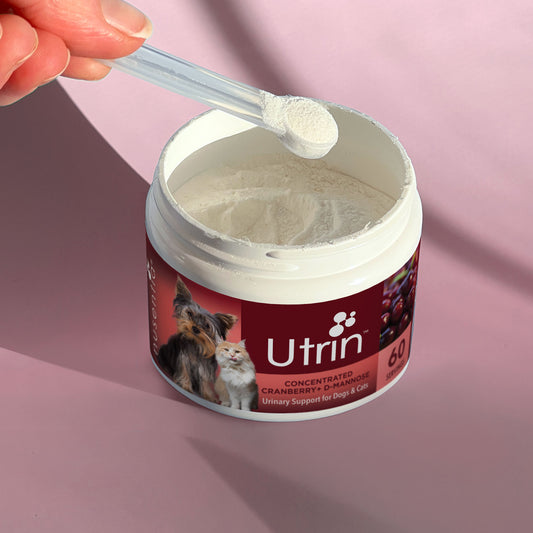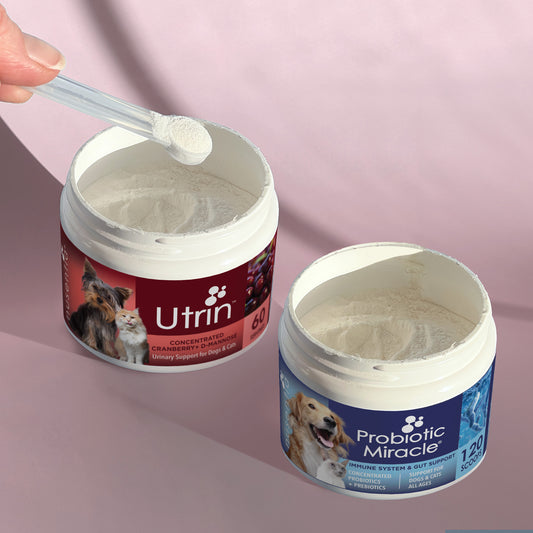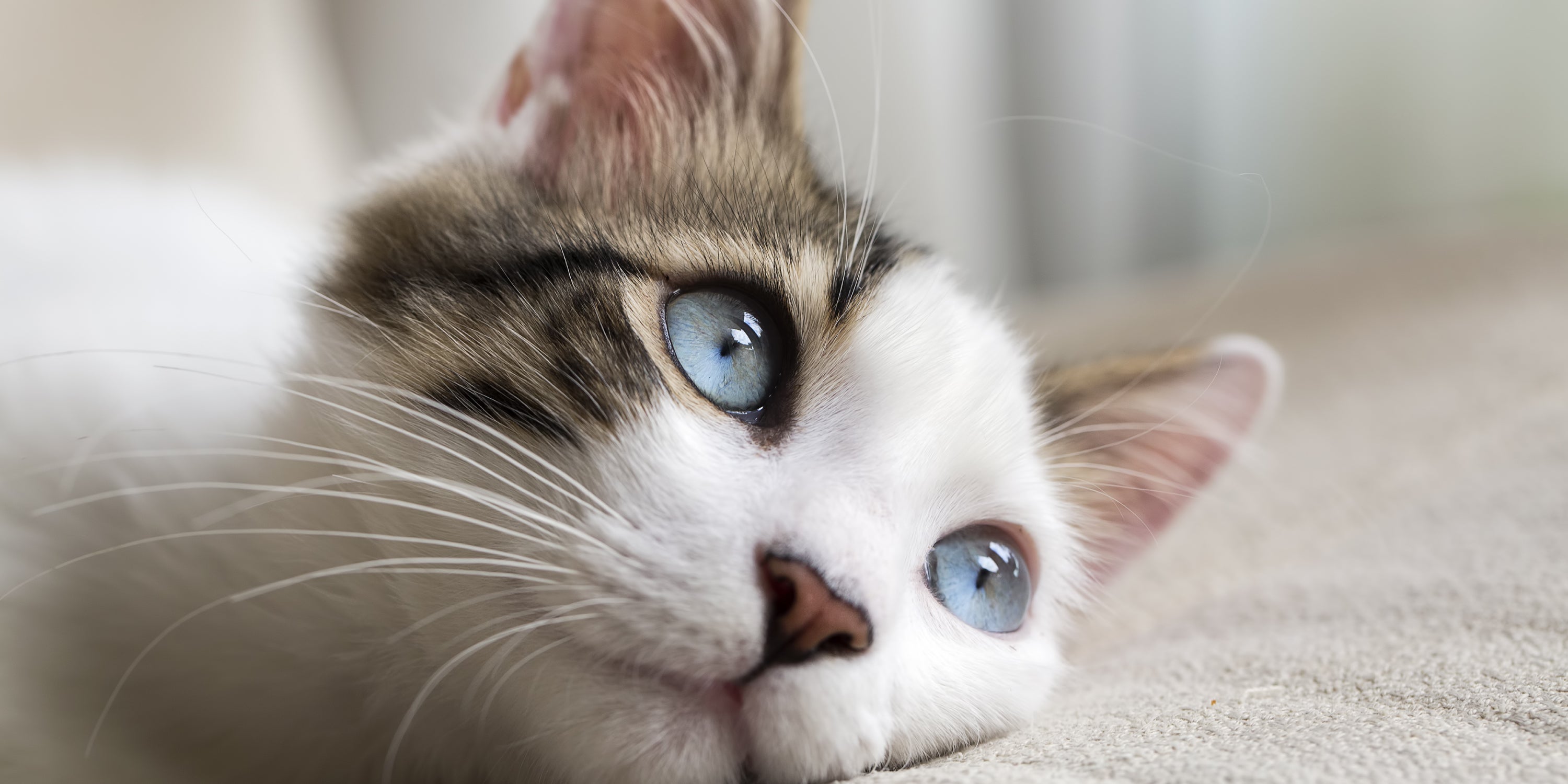
Tips for Cat UTI Treatment at Home
Welcome to our guide designed to support your pet's health naturally. Find a carefully curated selection of natural supplements below as well as tips to further assist you in managing Cat UTI Treatment at Home holistically.
-
Probiotic Miracle®
Regular price From $25.95Regular priceUnit price / per -
Bladder & Urinary Support Pack
Regular price $35.98Regular priceUnit price / per$44.98Sale price $35.98Sale
Collection: Cat UTI Treatment at Home
If your cat is showing signs of a urinary tract infection (UTI), you might seek natural remedies to complement traditional treatments and prevent recurrences. Natural approaches can be a valuable adjunct to veterinary care.
Discover how Nusentia® natural pet supplements assist in managing UTIs in cats, crafted with high-quality ingredients for optimal effectiveness and absorption.

Effective Home Remedies and Preventive Treatments for Cat UTI
Utrin™: A Natural Ally
Utrin™ combines D-Mannose and Cranberry to support urinary health, prevent bacterial adhesion to urinary tract walls, and provide essential support for cats prone to UTIs. D-Mannose reduces bacterial adhesion, while Cranberry protects against urinary pathogens.
Boosting Probiotics: Probiotic Miracle®
Augment your cat's antibiotic treatment with Probiotic Miracle® to maintain a healthy gut flora balance and enhance the immune system. Increasing the probiotic dose up to 3-4 times during and post-antibiotic treatment can be beneficial.
Understanding Urinary Tract Infections in Cats
Cat UTIs often involve the lower urinary tract, impacting bladder function and can be a manifestation of Feline Lower Urinary Tract Disease (FLUTD).
Look for symptoms such as frequent or painful urination, bloody urine, and excessive grooming of the urinary opening. Determining the cause is essential for targeted treatment, with cystitis referring to cases of unknown origin.

Causes of urinary infections in cats
- Bladder or urethral stones
- Incontinence issues
- Urethral plug
- Underlying bladder infections
- Stress-related factors
Symptoms and sign your cat has a UTI
- Straining or difficulty during urination
- Presence of bloody or cloudy urine
- Increased frequency of urination
- Urinating outside the litter box
- Excessive grooming of genital area
- Urine with a strong ammonia smell
- Increased thirst and possible lethargy
While severe UTIs require immediate veterinary attention, milder cases may benefit from natural remedies and dietary modifications to support recovery and prevent future incidents.
Home Strategies for Managing Cat UTIs
- Hydration: Promote water consumption to help flush out the urinary tract.
- Nutritional Support: Supplements like Utrin® and Probiotic Miracle® include cranberry and D-Mannose to prevent bacterial adherence and boost immune defense against UTIs.
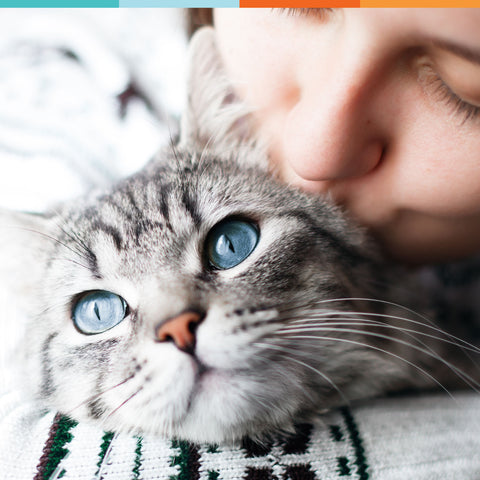
Conclusion
Integrating Nusentia® supplements into your cat's care routine offers a proactive approach to managing UTIs. Our specially formulated products like Utrin® and Probiotic Miracle® are designed to enhance urinary health and overall wellness. Begin your journey to safeguarding your cat's urinary health with Nusentia® today, ensuring a comfortable, UTI-free life.

